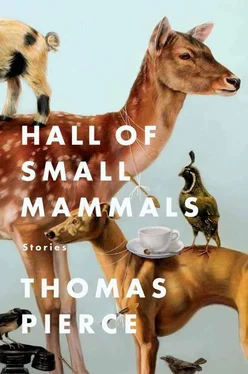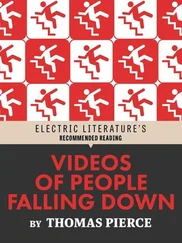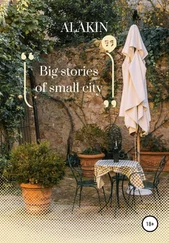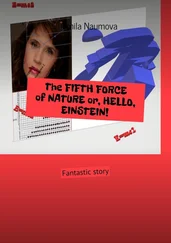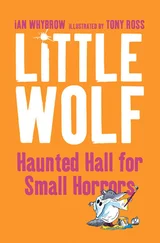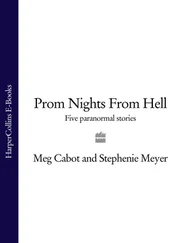Needless to say, our Academy had given no such approval to Dubose and had not cooperated with him in any way. That can’t be emphasized enough. It was Anders who had done these things, and certainly not as our dutiful representative. Those of us present resolved then and there to take a vote at our next meeting — to oust Anders, no matter his backers. We could not allow this exhibition to besmirch our good standing in the wider scientific community. We went in search of Dubose to demand he apologize publicly for claiming such an affiliation. If he refused us, we were resolved to destroy his creature by any means necessary, even if it meant setting fire to the barn.
We found Anders before Dubose. He was exiting the barn, along with Temp, a dazed look on both their faces. “So you’ve come,” he said when he saw us striding toward him. We didn’t like how pleased he seemed by all of this, by the music, by the celebration. When we informed him of our plan, he said, “Yes, well, I expected you might try something like that.”
We ordered him to take us to Dubose.
“He’s in there,” Anders said, and pointed back to the barn. “With his monster.” Every single crack between the dark wood slats exploded with yellow and orange light. We told him we had absolutely no intention of setting foot inside that barn. We wouldn’t give Dubose the satisfaction of gazing upon his creation. “Suit yourselves,” Anders said, smiling now. “But if you want to find Dubose tonight, if you want your apology, you’ll have to go in that barn. No other way.”
When he moved to leave us, leaning forward on his cane, we grabbed him by the arm. We asked why he couldn’t go into the barn and drag Dubose out to us.
“Something has occurred to me,” he said, shaking us loose. “If you made Dubose a member of our Academy, the bones would, in a certain sense, be ours too, would they not?”
He was talking nonsense. We told him so. He shrugged and disappeared into the crowd along with the girl.
We were divided on what to do next, but a quick vote decided our course: we would take our place in line. They were admitting only four people at once, and the line moved at a snail’s pace. By the time we reached those immense barn doors and reluctantly dropped our coins into the preacher’s jangling bucket, night had fallen and the only light was that provided by the lanterns. Inside, the straw was soft beneath our feet. We saw no sight of Dubose. We were told to keep moving. Smoke danced through the rafters of the barn, and there, up ahead, illuminated by a ring of red and blue glass lanterns, like something plucked from a nightmare, was the creature, lurching toward us with rows of sharp teeth and two long curving tusks, its chest puffed with breath, a single knowing blue eye at the center of its giant apish head. We were very, very quiet.
For a long time they do nothing but hide and wait. Very little light creeps in under the pantry’s double doors. Brooks examines the cans on the shelf level with his head: beans, corn, soup. This pantry does not belong to him — or to his sister, Mary. They are in someone else’s home. Mary has her eye pressed to the door crack.
“Do you have to breathe so loud?” she asks. “I’m trying to listen.”
The pantry is small but not coffin-small, not so small that Brooks can’t stretch his arms wide like a — well, like a what , exactly? Like a scarecrow on a pole. Okay, a scarecrow, sure, but where did that image come from? From the muck of the way back when, no doubt. “Your long-term memory seems to be hunky-dory,” Dr. Groom has told Brooks more than once, jubilantly.
Sure enough, a student theater production from almost thirty years ago bubbles up fresh, unbattered: the out-of-tune piano at the end of the stage, the hard crusts of chewing gum under the seats in the auditorium, the flattened cereal boxes cut into rectangles and painted to look like a road of yellow bricks. Fourteen years old, Brooks nearly landed the coveted Scarecrow role in The Wizard of Oz , coveted because of the beautiful blond-haired fifteen-year-old playing Dorothy Gale, a girl who later, according to three munchkins, gave it up to the Tin Man in the janitor’s closet. It could have been Brooks she gave it up to if he hadn’t screwed up the song in auditions and been cast instead as a member of the dreaded Lollipop Guild.
“If I only had a brain,” Brooks sings.
“That’s not funny,” Mary says, and looks over at him. “I really wish you wouldn’t say things like that. It’s upsetting.”
Say things like what? Oh, the bit about the brain. Brooks gets it now, why he’s thinking about the mindless scarecrow after all these years. Somewhere up in his head is the Old Brooks, that asshole, and he’s poking fun at this moodier, slower version of himself. If you only had a brain, Old Brooks is singing, a malicious smile on his chubbier face, his brown hair combed over neatly and not cropped short with scabby scars across the scalp.
“You might feel irrationally angry sometimes,” Dr. Groom has said. If he’s feeling agitated, Brooks is supposed to ask himself why, to interrogate his agitation, but God, does he want to punch something right now, anything, the angel-hair pasta boxes or the cracked-pepper crackers, the clementines or the canned chickpeas, so many chickpeas, a lifetime’s supply of chickpeas. He could punch the peas into a mash and lick his knuckles clean. Brooks has lost all sense of how long they’ve been hiding in this pantry. He plops down onto a lumpy dog food bag beside his sister.
“I don’t hear them anymore,” Mary says. “They might be upstairs. Maybe they’re asleep.”
Brooks nods, then lets his eyebrows scrunch. He can feel his sister studying him.
“Have you forgotten why we’re in here?” Mary asks. “Have you forgotten about the dogs?”
The events of the afternoon float and constellate in his memory: a turkey sandwich, his sister’s Taurus, a small brass key from under a rock, a tiled kitchen floor, two snarling dogs. It’s like standing inches away from a stippled drawing and being asked to name the subject. And the artist.
Mary gives him one of her pity smiles, where her upper lip mushrooms around her bottom lip, consumes it. She is a compact, muscular woman, still a girl, really, with a body for the tennis court, not the sort of person you could knock over easily.
The dog food pebbles crunch under his sharp butt bones when he shifts. He’s lost weight, probably twenty pounds since the accident. Brooks doesn’t remember anything from that night, but according to the police (via his mother), he was alone at the time, unloading groceries from the back of his car on the street in front of his townhouse. Someone smashed the left side of his head with a brick. A brick! The police found it down the street in some bushes, along with bits of Brooks’s skull. The assailant took the car (which still hasn’t been recovered and probably never will be) and his wallet. “A random act of violence,” his mother called it. “A totally senseless thing.” Unnecessary qualifiers, he sometimes wants to tell her, as the universe is a random and senseless place.
“I need to go,” he says.
“We can’t.”
“Go, as in pee.”
“Right,” Mary says. “Of course. I’m sorry. Let’s just give it a few more minutes. Just to be safe. The last thing we need is to go out there and get bitten.”
He squirms.
“Here,” she says, and offers him a third-full bottle of organic olive oil. “You can pee in this.”
• •
You can pee in this. Mary feels like one of the nurses. Brooks is staying with her for a month, and that means she is responsible for his meals, for his entertainment, for getting him to all his appointments.
Читать дальше
